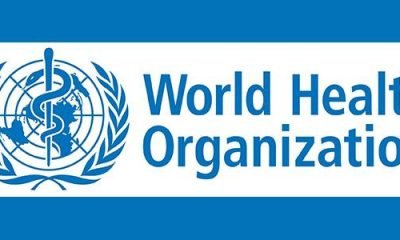Health
Obesity: Silent Killer Of Nigerian Children, Men, Women

Nigerian youths are faced with many challenges ranging from social, political, cultural and health, which affect their productivity. However, health challenges need to be addressed in order not to result in nervous breakdown or death.
One of the health conditions that need to be taken seriously by Nigerians is obesity, and it is a significant risk factor for several chronic diseases, including Cardiovascular diseases such as heart disease, coronary artery disease, and stroke.
Cardiovascular disease is the leading cause of preventable death in Nigeria and worldwide.
According to the World Health Organisation (WHO), obesity is abnormal or excessive fat accumulation that presents a health risk. Obesity is also a long-term disorder involving excessive body fat that increases the risk of health problems. WHO stated that being overweight, if not treated, is a significant cause of premature death worldwide. It added that obesity can also lead to diabetes and its associated conditions, including blindness, limb amputations, and the need for dialysis.
A Body Mass Index (BMI) over 25 is considered overweight, and over 30 is obese. A BMI of 40 or higher is considered severe obesity, while childhood obesity is measured against growth charts. The BMI measures average body weight against average body height. Although BMI has limitations, it’s an easily measurable indicator and can help alert you to obesity-related health risks.
Another way of assessing obesity is by measuring waist circumference. You are statistically more at risk of obesity-related diseases if you have more body fat around your waist. The risk becomes significant when your waist size is more than 35 inches for people assigned female at birth or 40 inches for people assigned male at birth.
WHO reports that the issue of obesity has grown to epidemic proportions, with over 4 million people dying each year due to being overweight or obese in 2017, according to the global burden of disease. Rates of overweight and obesity continue to grow in adults and children.

Excess body fat can crowd the organs of the respiratory system and put stress and strain on the musculoskeletal skeleton, which leads to disorders, including osteoarthritis. Obesity is also associated with some cancers, including endometrial, breast, ovarian, prostate, liver, gallbladder, kidney and colon. The risk of these noncommunicable diseases increases even when a person is slightly overweight and grows more severe as the BMI climbs.
Obesity in childhood is associated with a wide range of serious health complications and an increased risk of premature onset of related illnesses. Studies have found that without intervention, children and adolescents with obesity will likely continue to be obese into adulthood.
WHO asserted that more people are obese than underweight in every region except sub-Saharan Africa and Asia. Once considered a problem only in high-income countries, overweight and obesity are now dramatically rising in low- and middle-income countries, particularly in urban settings. The vast majority of overweight or obese children live in developing countries, where the rate of increase has been more than 30% higher than that of developed countries.
In an exclusive interview with Naija News, a health coach at mDoc Healthcare Limited, Titilayo Akinlade, said many causes of overweight and obesity can be prevented and reversed.
She opined that the fundamental cause of obesity in adults is an imbalance of calories consumed and calories expended, stating that other factors cause the health condition.
Akinlade, however, said healthcare providers can also use BMI to calculate obesity in children, and it is relative to the child’s age and assigned sex, adding that a child older than two years may be diagnosed with obesity if his or her BMI is greater than 95% of their peers in the same category.
The health coach called on Nigerians to lower the risk of obesity by reducing the number of calories consumed from fats and sugars, increasing the daily intake of fruit, vegetables, legumes, whole grains and nuts, and engaging in regular physical activity.
She said: “As global diets have changed in recent decades, there has been an increase in the consumption of energy-dense foods high in fat and free sugars. There has also been a decrease in physical activity due to the changing nature of many types of work, more access to transportation and increased urbanization.
“Lowering the risk of overweight and obesity includes reducing the number of calories consumed from fats and sugars, increasing the portion of daily intake of fruit, vegetables, legumes, whole grains and nuts, and engaging in regular physical activity (60 minutes per day for children and 150 minutes per week for adults).
“Your healthcare provider will measure your weight, height and waist circumference at your appointment. More importantly, when you come to your healthcare provider for care, they will want to know your whole health story. They will ask you about your history of medical conditions, medications and weight changes.
“They’ll also want to know about your current eating, sleeping and exercise patterns and stress factors and whether you have tried any weight loss programs in the past. They may ask about your biological family’s health history.
“They will also examine your vital functions by taking your heart rate and blood pressure and listening to your heart and lungs. They may give you a blood test to check your blood glucose and cholesterol levels and screen for hormone problems. They’ll use this complete profile to diagnose your obesity and any related conditions you might have.
“In babies, studies have shown that exclusive breastfeeding from birth to 6 months of age reduces the risk of infants becoming overweight or obese.”












